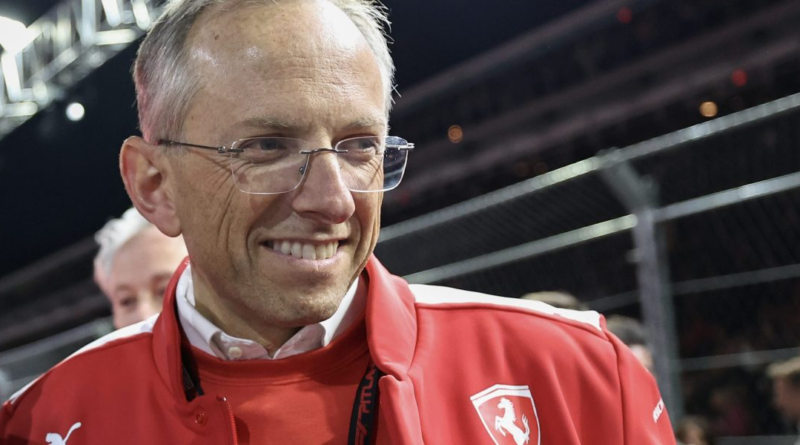Ferrari’s CEO has nearly doubled its share price since 2021—he credits smaller teams and cutting the company’s ‘bureaucratic mass index’
Benedetto Vigna became Ferrari’s CEO in 2021, when car sales were generally low as people were bound to their homes. But that didn’t dampen the Italian luxury carmaker.
Unlike some of its peers, Ferrari had a blockbuster year, making it a head-turner—on and off the road.
Vigna, a former chip industry veteran, has overseen the Milan-listed company’s growth over roughly three years as its shares have doubled. To be able to do that, the Ferrari CEO has looked inward to undertake big changes aimed at cutting processes, shrinking teams and minimizing bureaucracy.
“When the environmental condition is changing at high speed, you need to have a team that is able to adapt at high speed,” Vigna told the Wall Street Journal.
Just after joining the sports car company, that also makes Formula One racing cars, he spoke to hundreds of people who worked at Ferrari. His goal? To talk to the company’s “best consultant”—the employees themselves—and understand Ferrari better.
Vigna realized, in the process, that the CEO was too high up in the hierarchy relative to the rest of the company. He needed to cut the “bureaucratic mass index,” as he put it. The chief wanted smaller, more nimble teams within the company so there were no overlaps in peoples’ roles and they all felt important.
At the same time, he wanted to hear from the people who had the most valuable insights on the Ferrari experience—its “first clients,” the test drivers.
Even though Vigna wanted to reorganize the company, he didn’t opt for a slew of layoffs to achieve it. Ferrari has, in fact, hired more people while its rivals elsewhere have faced strikes and worker stand-offs.
“When you change the culture of a company, it’s never a revolution. It’s an evolution,” Vigna said.
Adapting—but staying popular even still
Part of the changes afoot under Vigna is linked to technology at Ferrari. Vigna, a self-proclaimed technologist, thinks the Maranello, Italy-based company is more than a luxury brand.
“It’s a luxury company where, contrary to other luxury companies, technology plays an important role,” he said.
Adapting isn’t a choice, given the growing focus on electric vehicles. But the long-time carmaker has embraced it as Ferrari’s new paradigm. Ferrari has leaned on its F1 expertise to bring state-of-the-art tech to its commercial cars.
Two years ago, the company said it’d invest €500 million by 2025 into new technology. It also said it’d invest €4.4 billion into developing fully electric and hybrid cars, which are meant to make up 60% of Ferrari’s portfolio by 2026.
Its hybrid cars, the first of which were launched in 2013, now make up about half of its sales. Its electric cars will begin production late next year—and Vigna is confident they will drive sales just as combustion engine cars did.
The Italian company is also careful about how many cars it puts on the road—it sold 13,663 cars in 2023. That’s a small fraction given some of the world’s carmakers, including those in the luxury space, sold millions of vehicles.
The disparity may be wide, but Ferrari is on its own track to success.
“We need to transform to make sure our clients are our fans. The more our clients are our fans, the higher the success,” Vigna said.




